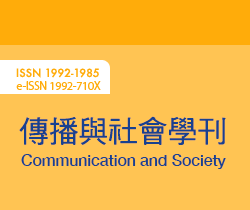本期《傳播與社會學刊》文章直接回應了互聯網2.0時代下的社會與文化現象。開篇學術訪談對象為當代媒介研究領軍人物之一 —亨利· 詹金斯(Henry Jenkins)。張琳的提問讓我們重新審視,在互聯網2.0時代,詹金斯所提出的「文本盜獵者」(textual poachers)概念是否仍具說服力。表面看來,詹氏所探討的媒介粉絲的文化消費與社群意義生產活動,同本期邱林川、陳韜文及茅知非主編下的「傳播科技與新媒體事件」專輯並無多大關聯。但事實上,後者專輯中所闡述的輿情學、新媒體的新聞論述及其他互聯網的政治監控等,均為從宏觀研究視角,以不同社會事件在網路上的結構控制(structural control)為前提,聚焦從媒介工作者到社會抗爭者的不同網路群體,對其結構規範及各式抗爭與突破策略模式所展開的研究與探討。換言之,本期刊載的六篇論文,雖然沒有直接以「文化研究」為理論基礎,但其所具有的批判性與詹金斯所提出的部份粉絲社群仍以「反抗」(resistance)概念為基礎的文化論述同出一轍,即無論互聯網下的新媒體(如BAT等),還是網上較為流動、消費社交貨幣的「禮物經濟」,抑或以產品消費(prosumption)模式為主的粉絲群體,均採取了各種策略對現有格局、體制與霸權進行了不同程度的反擊。詹金斯將粉絲比作「文本盜獵者」的樂觀論述,隱現在本專輯論文字裡行間的言說中。
與此同時,從粉絲所處的社會文化經濟環境,到網絡空間對網民產生的「束縛」, 在我看來, 都是詹氏理論中「協商空間」(space of negotiation)的具體呈現。誠然,不同國家與會背景下,「協商」的步伐與能夠爭取到的空間實有差異,但學者們總是期望能在文化、經或政治的空隙中找尋希望。至於不同網路空間下的草根社群,雖然並非我的研究所及,但不揣陋見,我認為草根社群及一些非草根的網絡產消者,甚或是建制內游散的精英,均存在著詹金斯所反覆論述的「主動性」(agency)或「主體性」(subjectivity)特徵。
探討究竟網民是否具有主體性,向來是傳播學的恆久問題。最近我跟Jeroen de Kloet 出版了一本有關中國青少年文化的書,書中對此問題亦有涉獵。我們的觀點是,在網路上或在青少年群體中,出現革命的可能性很低,類似楊國斌教授所說「情之殤」的互聯網情境比比皆是。畢竟作為傳媒學者,除以客觀的角度說明現實的狀況外,歸根究底,我們學術研究背後的更高理想是希望透過研究,在傳播學領域為讀者及其他傳媒學者表明維護社會公義及公共利益的重要性。
This issue comprises two seemingly different sections: an academic dialogue with Henry Jenkins about his concept of “textual poacher” and a collection of articles on communication technology and new media events. However, a common theme carries through both sections. The articles in this special issue identify strategies for resistance and challenges to the highly monitored and structuralized online media, social media, and Internet space in China. Henry Jenkins’ analysis of the culture of fandom explores the cultural resistance of prosumer labors identified in online spaces in the American context. In reality, as Yang Guobin demonstrates, despite the weakening of online activism and increasingly stringent control, the possibility of agency and subjectivity in online spaces cannot be disregarded. At this moment, there is no revolution by youth, netizens, or intellectuals in China. However, the articles in this special issue demonstrate that the scholarship on weak public voices and marginalized communities continues to educate the public about the ideals in which we believe.
本文引用格式﹕
馮應謙(2017)。〈互聯網的抗爭與理想〉。《傳播與社會學刊》,第40 期,頁 v–vii。
Citation of this article:
Fung, A. Y. H. (2017). Resistance and ideals in the Internet space. Communication & Society, 40, v–vii.
|
